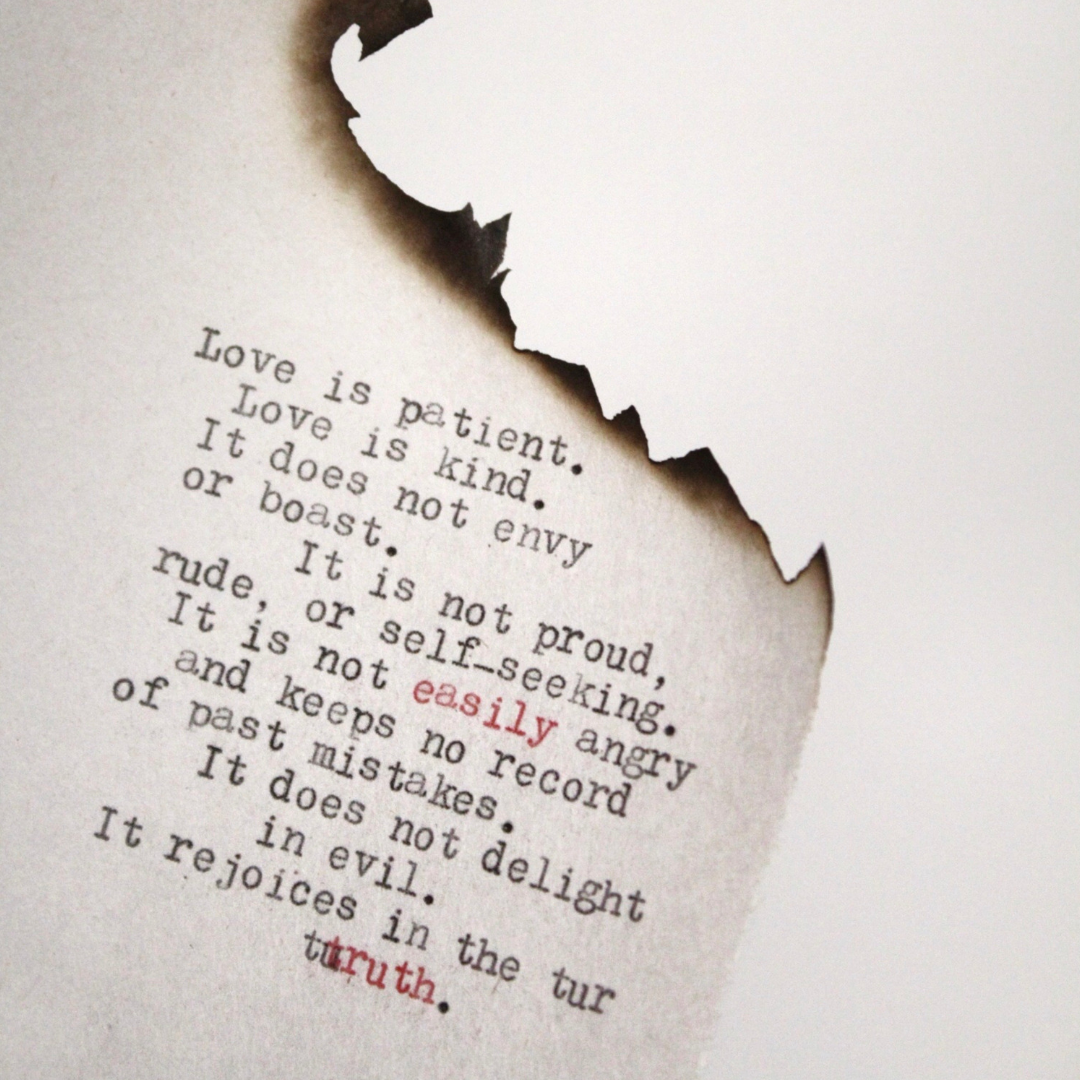4 Tips For When You Don't Feel Like Loving Your Spouse
/Love Keeps No Record of Wrongs
(no husbands were harmed in the making of this post)
Of all the attributes of love, this is by far one of the hardest ones for me.
“... [love] keeps no record of wrongs”
All too often I want to respond in an argument with a list of all the wrongdoings imposed on me.
Like that one time he implied I was unintelligent.
Or that other time he insinuated I needed to lose weight.
The frustrating thing is when it matters most, my memory gives out on me. Yet, in the midst of an argument, the infamous record appears, asking to be used to satisfy my “righteous” anger.
This record is a detailed record, one in which I can recall the who, what, when, where, and why. And it isn’t enough to remember the physical details, but I can remember the feelings as well -- the sting behind the unintentional hurtful comment and the feelings of inferiority.
It has taken years of self-realization to recognize that when I bring up those moments in the heat of an argument, I want to play “woe is innocent me.”
I forget about all of my faults and instead, want to focus on all of the ways my partner or friend has failed me. Nevermind, all of the times I’ve been forgiven when I’ve fallen short. In this moment, it’s about seeking justice for all of the wrongdoings regardless of the role I played.
But love keeps no record of those wrongdoings. It does not keep score of who said I’m sorry first, or who said it last.
You might ask if love keeps no record of wrongdoing then why is it so easy to recall past offenses? Does it mean, I don’t really love him?
Why does this record find its way front and center in the midst of a disagreement? It is because, in the moments of feeling anger, pain, and confusion, they replace the emotional feelings of love.
But love is more than feelings, love is an action, a choice. It is rooted in something deeper than our ever changing, flippant feelings.
It is the choice to forgive, even when the offender doesn’t think they’ve done anything wrong.
Love is the choice to say I’m sorry first, unconditionally, even when you don’t want to.
Love is moving past a person’s actions and reflecting on yours because we are not innocent.
Love is admiring that we are weak and sinful, and so is every other person on this earth.
“Forgive them, Lord, for they know not what they do.” - That should be our mantra.
Love is recognizing that your feelings are valid, but the same can go for the wrongdoer. There is only one right way, and it is not yours or his, but God’s.
Love is having the patience even when you don’t want to have the patience.
Love is not boasting, especially in your “righteousness” (woe is innocent me).
Love is hard.
So why is it that in the moment in which we feel most unloved, we respond in an unloving fashion? Are we not doing what we hate? We get upset because ultimately we don’t feel loved or respected, so we respond in the most unloving way, by keeping record of all the wrong we’ve endured.
But I am here to tell you, this record of wrongdoing is not love. It is meant to tear you apart from your spouse or your friend. It does not uplift and encourage, but belittles and destroys.
Sister, in the heat of the moment, when all you want to do is focus on the past and that record of hurts, pause and rise above those feelings.
Love is a choice you can make despite those feelings because our ultimate Lover, our Father God, loves all of us with all of our sin smeared all over the place. We can love “because He first loved us.”
4 Tips for Rising Above Your Feelings
Pause and reflect. In the heat of a disagreement, pause before you respond. Whether it is face-to-face or via text/email. Pause and reflect on what you want to say.
Will your words help or hurt the situation?
Preach to yourself. The moment I found myself wanting to list out someone else’s faults was the moment I started preaching to myself “Love is patient, love is kind…. It keeps no record of wrongdoings”. Find your own verse or quote and remind yourself of its truth when you need it most.
Ask yourself, what do you really want? Do you want an apology? Are you trying to change someone else’s mind? Why am I feeling this way? Was the comment/action intentionally meant to hurt me? The answers to these questions should direct your response.
Forgive. We are all called to forgive, regardless of the other person’s actions. Forgiveness does not negate consequences but instead, it will free you from emotional bondage.









